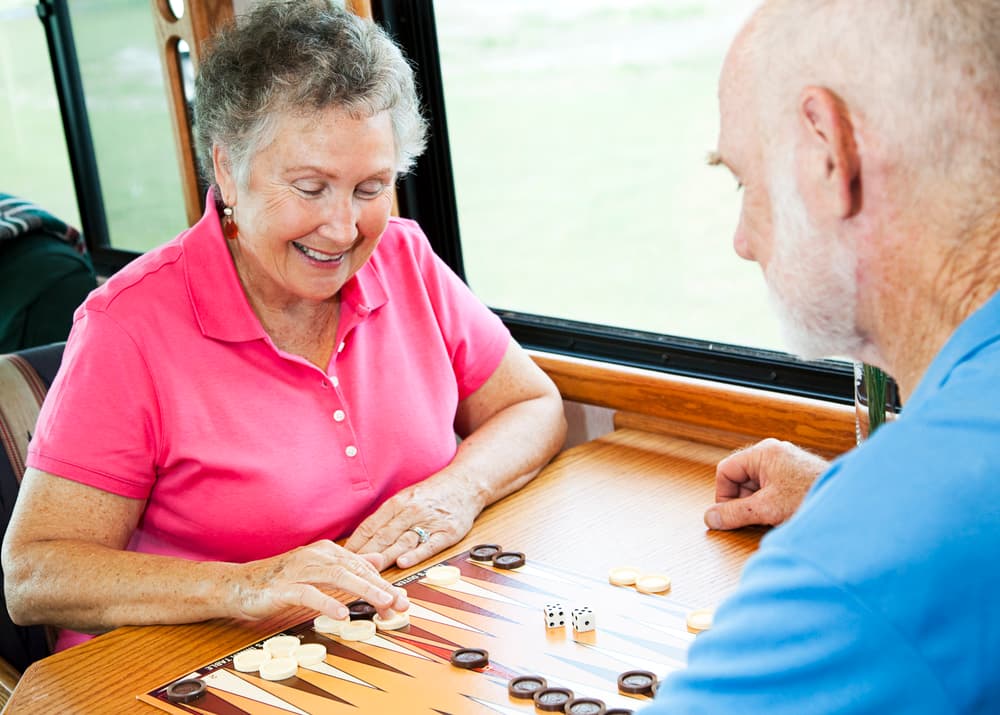
At Nerdcore Medical, we love games. Shocking, we know, considering we design and produce them. Games help people learn. They take complex information and make it engaging, memorable and interactive.
But what if games could do more? Evidence is mounting that they can, especially when it comes to protecting your brain. The latest evidence: A November 2019 study in The Journals of Gerontology: Psychological Sciences suggests playing offline, analog games (cards, board games, crossword puzzles, etc.) is associated with a drop in cognitive decline.
Key Findings
This study used data from the Lothian Birth Cohort of 1936, a group of more than 1,000 people born in that year and followed throughout their lives. At age 11, these study participants took a specially designed cognitive test called the Moray House Test (MHT) No. 12. Then, between ages 70 and 79, they took the MHT every three years to measure:
- Memory
- Problem-solving
- Thinking speed
- General thinking ability
Researchers asked healthy participants without dementia or cognitive impairment how often they played games at ages 70 and 76. Everyone’s scores declined at 79 compared to at 70, but those who played games the most—every day or several times a week—scored higher at the outset and higher at age 79 than those who played a few times a year or never.
The main advantage of playing games every day as opposed to several times a week was a boost to scores in a few of the tests at age 73. After that, those two cohorts evened out, but still scored higher than the rest. In fact, those who played games a few times a year or never had the worst scores on every test between 70 and 79.
By asking about game play at both 70 and 76, the researchers could track who increased their play frequency. These participants scored better on their tests compared to those who played less.
Games and Cognitive Reserve
Playing games may help build cognitive reserve. Cognitive reserve is the brain’s ability to improvise and work around problems, and it’s an important consideration in any kind of discussion about dementia or cognitive impairment. Basically, it’s an individual brain’s level of resilience and its ability to keep operating when compromised.
Cognitive reserve may not prevent Alzheimer’s disease or mild cognitive impairment, but it may mitigate their effects on everyday life. The brains of people with high levels of cognitive reserve can still function well despite the structural changes and abnormalities (amyloid plaques and tau tangles) that are the hallmarks of Alzheimer’s disease.
Stimulation is key to building cognitive reserve. Drawing and painting, learning a new language and playing games—video or analog—are all ways to stimulate the brain. It’s important to mix it up, though. Just like your muscles, your brain gets used to certain exercises and you start to see diminishing returns from the same ones.
Preserve Your Brain
Of course, there are a lot of other factors that influence whether someone will experience dementia or cognitive decline in late life. Activity plays a big part. In addition to the many proven benefits of exercise and physical activity on heart health, diabetes, longevity and so much more, regular exercise may be one of the best protections against cognitive impairment.
Likewise, actively managing eating habits that include healthy unsaturated fats, plenty of fiber, fruits, vegetables and lean meat has proven brain-preserving powers.
In the Lothian Birth Cohorts, other factors associated with better cognitive function and less decline include:
- Higher test scores at age 11
- Female sex
- Higher education level
- Higher socioeconomic class
But even after controlling for those other factors, playing games on a regular basis provided a modest but clear benefit. The study wasn’t designed to test any treatments of cognitive decline (with board games or other methods), so the researchers involved are cautiously optimistic.
“For members of the general public, playing games might help with cognitive aging, and it certainly wouldn’t hurt,” lead researcher Drew M. Altschul, PhD, of University of Edinburgh, told Medscape.
Like games? So do we. Take a look at our selection of medical-themed learning games. You’re sure to find something you’ll enjoy playing. Their brain-preserving effects? Bonus!

